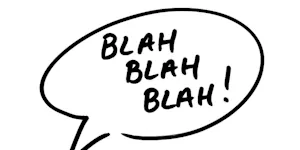What Makes This Word Tick
"Vermouth" is not just a trendy cocktail ingredient; it carries a splash of sophistication and an aromatic melody in every syllable. Known for its role in enhancing cocktails, vermouth is a fortified and aromatized wine, tickled with a variety of botanicals that bring forth a whole new level of taste.
If Vermouth Were a Person…
Imagine vermouth as a well-traveled, urbane individual who knows how to charm guests at a cocktail party. This person speaks several languages and has a flair for storytelling, peppered with references to exotic botanicals and European landmarks.
How This Word Has Changed Over Time
Originally referred to as "wermut" in Old High German, the word and the beverage gradually found fame in Italy and France as "vermouth." Over time, it has evolved not just linguistically but also in the way it's perceived, now seen as a classic staple in mixology rather than just a medicinal tonic.
Old Sayings and Proverbs That Use Vermouth
While there aren't ancient proverbs featuring vermouth, you might hear mixologists say, "A martini without vermouth is like a day without sunshine." It serves as a reminder of the integral role it plays in certain cocktails.
Surprising Facts About Vermouth
Did you know that vermouth was once considered a health drink? With its roots in herbal medicine, it was believed to aid digestion and stimulate the appetite. Furthermore, vermouth’s recipes often remain a well-guarded family secret, passed down through generations.
Out and About With This Word
In cities renowned for their nightlife, like New York or Paris, ordering a vermouth is as natural as waving to a neighbor. It signifies a touch of class and a nod to history in the world of spirits.
Pop Culture Moments Where Vermouth Was Used
Vermouth has had its moments under the limelight thanks to James Bond who famously preferred his martinis "shaken, not stirred," with a dash of vermouth. It's made countless appearances in films and television, symbolizing elegance and sophistication.
The Word in Literature
Vermouth makes cameo appearances in many classic novels and plays where characters indulge in leisurely drinks, from the works of Agatha Christie to Ian Fleming, enhancing scenes where wit and charm are required.
Moments in History with Vermouth
Vermouth has roots in 18th-century Turin, Italy, where Antonio Benedetto Carpano crafted the first known recipe. It gained prominence in the 19th century as the cocktail movement began, aligning itself with the glamorous lifestyle of the time.
This Word Around the World
In Spain, vermouth is affectionately known as "vermut" and is served as a pre-lunch aperitif, often accompanied by tapas. The French savor it in their "apéritif" traditions, while in Italy, it's an integral part of "aperitivo" culture, each country adding its unique twist.
Where Does It Come From?
The origins of vermouth can be traced back to ancient medicinal wines with wormwood, used for its supposed health benefits. The modern version was born in Turin, and today it is crafted with a blend of botanicals and fortified wine.
How People Misuse This Word
Many often mistake vermouth as just any type of dry wine, overlooking its unique herbal notes and the complex process that differentiates it from other fortified wines.
Words It’s Often Confused With
Wine: Unlike typical wine, vermouth is fortified and infused with botanicals.
Bitters: Although both used in cocktails, bitters are much more concentrated and potent.
Sherry: While both are fortified wines, sherry isn’t typically aromatized with herbs and spices.
Additional Synonyms and Antonyms
While there's no perfect synonym for vermouth because of its distinct nature, terms like "fortified wine" or "aromatized wine" get close. Antonyms might be "non-alcoholic beverage" or simply "juice."
Want to Try It Out in a Sentence?
"After a long week, she enjoyed unwinding with a classic Negroni, the vermouth adding just the right amount of herbal complexity to the drink."
















